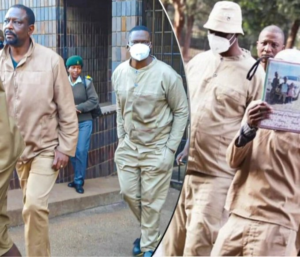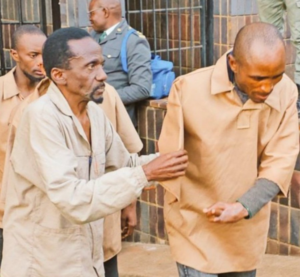GOVERNMENT’S USE OF SOLDIERS FOR ORDER BEFORE SADC SUMMIT SPARKS FEAR AND CONTROVERSY

The Zimbabwean government’s decision to deploy soldiers to maintain law and order ahead of the Southern African Development Community (SADC) summit has raised serious concerns. The move, intended to ensure quick response and control potential unrest, is being criticized for its potential to blur the lines between military and police roles. This blurring could lead to violence, brutality, human rights abuses, and a lack of accountability, making the situation very dangerous.
The decision comes amid a massive crackdown on dissent in Zimbabwe. Since mid-June, authorities have arrested more than 160 people, including opposition members, union leaders, students, and journalists. Amnesty International and Human Rights Watch have expressed deep concern over these actions, calling for the immediate and unconditional release of all those arrested for exercising their rights.
The crackdown has been brutal. Reports have emerged of security forces using tear gas, beating people until they needed hospitalization, forcibly disappearing individuals, and torturing detainees. These actions have set a dangerous tone for human rights in Zimbabwe and raised questions about the SADC bloc’s commitment to human rights under the upcoming leadership of Zimbabwean President Emmerson Mnangagwa.
The arrests began on June 16, when police raided the home of Jameson Timba, leader of the opposition Citizens Coalition for Change (CCC) party. During this private gathering, 78 people were arrested. The police used tear gas and batons, injuring many. Some injuries were severe enough to require surgery. The group was charged with “gathering with intent to promote public violence and disorderly conduct.” Despite the law requiring court appearances within 48 hours, the authorities held them for more than two days without a court appearance. While two children were released, 75 adults remain in detention.
The crackdown continued with the arrest of 44 members of the Zimbabwe National Students Union (ZINASU), including its president, Emmanuel Sitima, on June 24. They were forced to pay fines for “disorderly conduct” before being released. Sitima was then re-arrested for “criminal nuisance” and released the following day on bail. On June 27, President Mnangagwa warned against opposition parties and civil disorder. Just hours later, police arrested peaceful protesters outside Harare Magistrate’s Court.
The situation escalated further on June 29 when five members of the National Democratic Working Group social justice movement were arrested at a private home during a meeting to raise funds for impoverished families. They were released, but the pattern of arrests continued. On July 1, police broke up a memorial service for a CCC member, arresting six people affiliated with the Community Voices Zimbabwe media organization in Gokwe.
On July 31, state agents pulled four activists off a plane at Robert Gabriel Mugabe Airport and forcibly disappeared them for nearly eight hours. Lawyers documented evidence of torture and ill-treatment, including severe bruising on one activist requiring urgent medical attention. The four activists were charged with “disorderly conduct” for participating in a June 27 protest.
In early August, more than 30 people were arrested across Zimbabwe. Among them were Emmanuel Sitima, arrested for a third time, a parliamentarian, and several other opposition members and activists. On August 8, masked individuals attempted to break into the offices of the Crisis in Zimbabwe Coalition in Harare.
The widespread violations, including violent attacks, abductions, torture, arbitrary arrests, and other abuses against government critics and activists, highlight the failure of President Mnangagwa’s government to respect basic human rights. Despite this, the SADC bloc has remained silent on these human rights violations.
The situation in Zimbabwe has put the SADC bloc’s commitment to human rights under intense scrutiny. As President Mnangagwa prepares to take over the SADC chairmanship, the need for a clear stand against the crackdown in Zimbabwe has never been more urgent. The SADC summit in Harare presents an opportunity to address these issues and improve respect for human rights across the region. The world watches closely, hoping for a commitment to human rights and accountability in the days to come.



